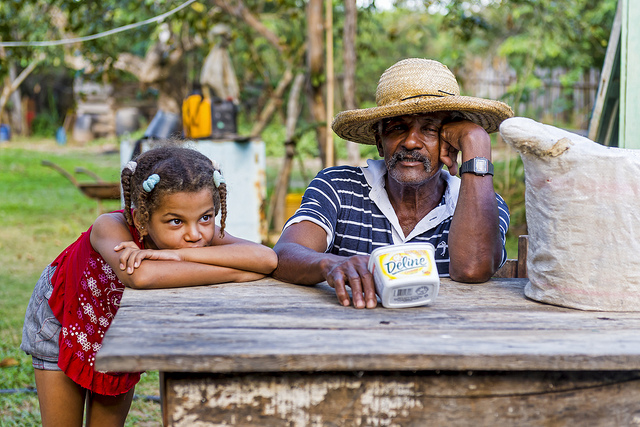Poverty In Brazil

Poverty in Brazil impacts all aspects of the country. Last month, thousands stormed the streets of Brazil to protest increased transportation fares. As the protests persisted, the causes of the protests expanded to include government corruption, poor social services, and high taxes, while meanwhile, billions were being spent to host the World Cup and the 2016 Olympics. Amidst this public upheaval, President Rousseff’s approval rating slipped from 73.7% to 49.3% in July. During Rousseff’s election campaign, she promised to eradicate poverty, saying it would be her top priority in office. Many are upset that these changes have not come soon enough.
With some of the highest paid executives in the world and an appreciating currency, the Brazilian economy appears to be well off. In addition, poverty in Brazil has been halved in the last two decades. The government is credited with lifting 28 million out of extreme poverty and bringing 36 million into the middle class. But despite being the sixth largest economy in the world, Brazil’s GDP per capita ranks 100th, behind Iran and Costa Rica. In Brazil, poverty disproportionately affects the young and those in the northeast. 8.5% of the population (16.2 million) lives on less than $45/month. Of the 16.2 million living below the poverty line, 4.8 million survive on no income at all.
Poverty In Brazil
To put it simply, Brazil is a nation of stark contrasts. Although the nation has some of the wealthiest in the world, many more suffer from extreme poverty. 26% of the population still lives below the poverty line. Brazil spends a lot of money on social programs, but because these programs are pro-rich, Brazil’s poorest only see 13% of all total benefits compared to 24% at the top. Increased social spending would not alleviate poverty in Brazil. Rather, Brazil must restructure its spending to reach the poorest. Maercio Menezes, professor of economics at the University of Sao Paulo, told the BBC, “Brazil is one of the most unequal countries on the planet… The reduction (of poverty) that has been taking place in the past decades is minor. If you are born into a poor family it is very difficult for you to eventually become rich.”
In June of 2011, President Rousseff expanded the country’s aid programs to reach the nation’s poorest. Rousseff launched a multi-billion dollar social assistance program called “Brazil without Misery,” and its aim is to eradicate extreme poverty from Brazil by 2014. The program expands a cash transfer benefit program started in 2003 by the Bolsa Family, which provided families with cash benefits in exchange for keeping their children in school and following a simple health and vaccination program. Since the program’s inception, it has helped tens of millions of Brazilians by providing food and basic social services. But, according to President Rousseff, Brazil cannot be content with just a big social program – it must do more to reach the nation’s poorest.
“Brazil without Misery” is made up of three components. First, it extends the cash transfer program to reach more people. The program increases the number of eligible children per family from three to five, in order to reach an additional 1.3 million children. Second, the government aims to improve access to health services, education, and improved infrastructure (running water, electricity, sewage disposal). Lastly, the plan intends to improve the economic means available to Brazilians through job creation, vocational-training and microcredit. To assist Brazil, the World Bank has offered $8 billion towards the program.
Several weeks ago, Pope Francis made a visit to one of Brazil’s most infamous slums. The Brazilian government was most worried about protesters during the Pope’s visit, but the Pope showed support for the nation’s poor and even criticized the government for not doing enough. “Here, as in the whole of Brazil, there are many young people… You have a particular sensitivity towards injustice, but you are often disappointed by facts that speak of corruption on the part of the people who put their own interests before the common good.”
In order to eradicate poverty in Brazil, it is clear that a social overhaul is necessary. The stark inequalities within Brazilian society keep the rich wealthy, but prevent the poor from attaining economic security. Social and economic restructuring will not come easily, nor will they come immediately. Moreover, Brazil will need to reassess “Brazil without Misery” once its term is up in 2014 to see if continuation or expansion is required to meet the needs of the nation’s poorest.
– Kelsey Ziomek
Sources:World Bank,Rural Poverty Portal,Rio Times,ISSA
Photo: Paraiba Paradise
